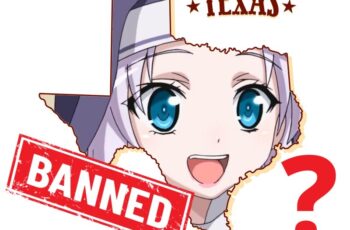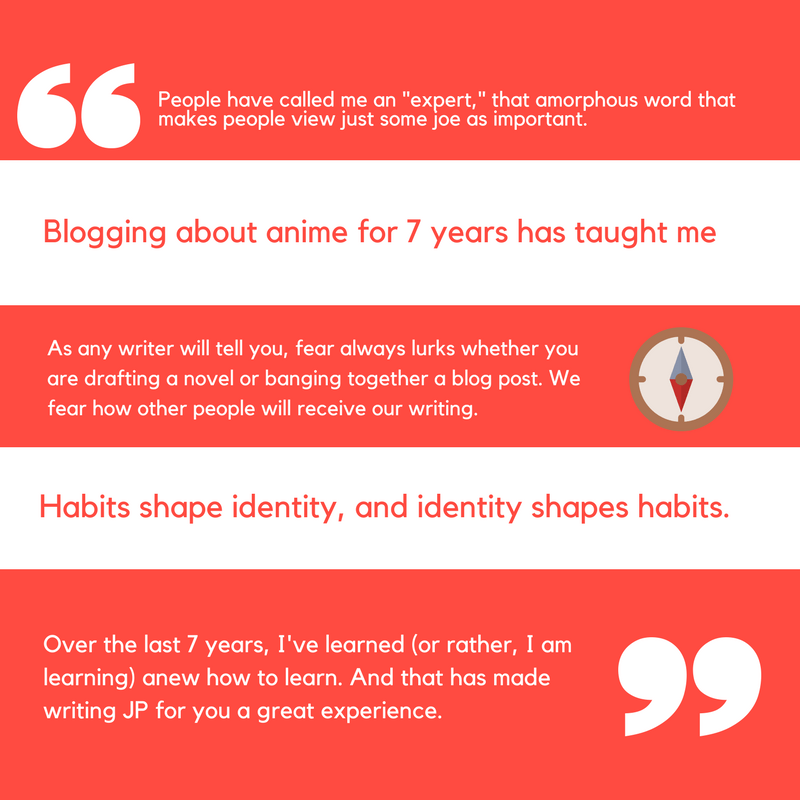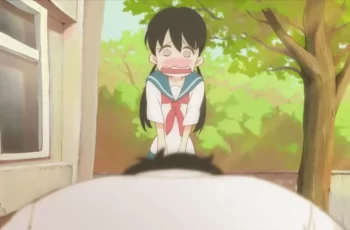Tony Yao discusses another book ban on his website Drop-In to Manga. This time, Florida has banned Sasaki and Miyano by Sho Harusono because of its LGBTQAI material. Book bans happen frequently for many different reasons, usually under the guise of “protecting the children.” Most of the time, the parents who want to ban books haven’t read the books themselves, and they are afraid to do so. They fear the influence these narratives will have on their children, especially when the narratives cut against the narratives the parents want to instill in their children. Parents who advocate for bans (and I speak from experience as a former librarian) fail to consider how other parents deem the books banners support as damaging narratives too. LGBTQAI parents, for example, could advocate for banning narratives the typical banner deem wholesome. In some states, this has happened, leading to bans on the Bible in primary school libraries because of the violence the Bible contains (Matza, 2023). The thinking behind book bans cuts both directions.
Most book bans come from religious parents who do not want their children exposed to perspectives they deem as unscriptural, counter to their family values, and other justifications. Let’s put aside the debate about whether this sort of thinking is moral or not. Families have the right, in the US for now, to teach whatever values they want to their children. When parents seek book bans, they abdicate their responsibilities as parents. They give this responsibility to the state. If the state would step in and ban access to material the parents support, those parents would scream about their rights being taken. People hold a positive view of the state when the state “sides” with them. Such people fail to understand how that state will reach into realms that they hold dear once the state gets in the habit of reaching. As a Christian myself, I dislike being associated with people who support book bans. Book bans aren’t a method for protecting children. They are an act of fear and an abdication of personal responsibility to the state. Responsible parents I’ve encountered during my decade as a librarian would use material they disagree with as teaching material. One religious parent who believe LGBTQ was sinful (asexual isn’t sin if you are wondering, nor is “true” intersex–being born with both organs or XXY chromosomes) encouraged their children to read books written in support of those groups. They would then discuss those books and explain why they go against their family values and how their children should focusing on loving people regardless of their identity even while not accepting those identities. By banning such books, “concerned” parents are banning a teaching method members of their own tribe, for a lack of better word, uses.
Tony (2024) provides a good observation of this problem:
The freedom to express yourself with no qualms is frightening to those who want to control others’ ways of thinking. America, to be honest, loves to emphasis strict control in a Puritanical sense in the guise of freedom. Their whole history has been linked to organized religion in awful ways. I think some people really don’t want to think for themselves because TRUE freedom is scary when you have only yourself to rely on.
Much of the problem stems from people’s lack of good history education. History teems with examples of book bans that escalate into witch hunts that target the very people who originally supported the book bans. Book bans also draw more attention to the books. The best way to draw attention to something is to ban it; the best way to make a book disappear is to ignore it. History provides the best means of predicting behavior and outcomes. Human behavior follows patterns. When you understand those patterns, you can predict the probability of certain outcomes. Book bans have a high probability of being ineffectual, which is encouraging for those who dislike book bans. However, bans also have the probability of escalating as groups and the state grab more power, leading to the witch hunt problem. I like to think of history as a pendulum that follows Newton’s Laws of Motion: “For every action, there is an equal and opposite reaction.” When the pendulum swings politically right, however you define right, it will eventually swing equally politically left. So, the harder a society swings one way, the harder it will swing the opposite way given enough time. With this model in mind, anyone who advocates for banning books needs to consider how the books they support will be banned when the pendulum swings. Freedom sits at the peak of the pendulum’s arc. It’s possible to hold history’s pendulum there, but it takes very little to swing that pendulum. It takes more effort to preserve intellectual freedom because, as Tony writes, freedom is scary.
Book bans provide a means to assess what a segment of a society fears and how a state considers its power use. States will cater to those who allow the state to expand power and otherwise benefit itself. The state, by definition, controls. Book bans are an example of control, but not banning book bans is also an example of control. Protecting freedom, as strange as it sounds, is a control method. I’m sounding tin-foil hat, I know. Power and control are roles of society. Protecting freedom requires controlling those who deem freedom, usually freedom for some and not others, as toxic. Consider the Jim Crow Laws in the US. By revoking those laws, the US federal government exerted control and power to protect the freedom of black Americans. While this is a good exercise of control and power by a state, this is still an example of control and power. Book bans fall into this category. The state chooses to exert power to protect the values of one group at the expense of another whether it bans books or decides to not issue a book ban.
I favor intellectual freedom. People have nothing to fear from ideas if they are well-educated. Education, by the way, doesn’t mean formal education. A well-read person is educated even if they are a high-school drop-out. Uneducated people (yes, this is elitist of me) fear ideas, nuance, and uncertainty. They turn to the state and to media companies to act as a parent to protect them from their fears. Such people give up their parent responsibility and their responsibility for their own thoughts when they turn to the state to ban books or turn to only certain media outlets that align with their established narratives. Giving up self responsibility doesn’t mean they give up their accountability. In the end, banning books reveals lazy, fearful thinking. Instead, book ban supporters ought to read the books they want banned and then discuss those books with their children.
References
Matza, Max (2023) Utah primary schools ban Bible for ‘vulgarity and violence’. BBC. https://www.bbc.com/news/world-us-canada-65794363.
Yao, Tony (2024) You Can Learn Something from Banned Manga. Drop-In to Manga. https://www.dropintomanga.com/post/762638558040326144/you-can-learn-something-from-banned-manga.






It’s an oversight to talk about these bans without talking about how they come from a place of genuine hatred of those who are different from the banners. There has been an upswing in anti-trans and anti-gay hatred in the US and genuinely I fear where it will lead. In 2023, there was an increase in hate crimes motivated by the victim’s gender and sexuality (the data is released by the FBI for the year before, so to my knowledge this is the most recent statistic available) (https://abcnews.go.com/US/hate-crimes-lgbtq-community-rise-fbi-data/story?id=113962673).
To be clear, I’m not accusing you of being in support of this, you seem like a reasonable guy and certainly not the violently hateful type. Even if we would disagree on certain things, it’s a relief to see someone of a different perspective articulate why book banning is harmful. I’ll also add that as a younger person who grew up in the 2000s and 2010s, there was always an option available at my school for parents to regulate what books their kids could read, but it was an opt-in form rather than a regulation enforced on the entire student body due to the wishes of some parents.
You’re correct that genuine hatred motivates some people to ban books. When you look at history, increases in hate crimes usually associate with increases in hateful narratives targeting certain groups. It becomes a power-play by those who control the messaging. Hate certainly sits behind some of their motivations. But cynical power and profit ploys also sit in those motivations. I don’t know about you, but this cynical take troubles me more than “honest” hatred because of how the take sits within conscious action rather than emotion. This doesn’t diminish the danger of the emotional motivation of course!
Among the general population, fear of the unknown and the different stand behind most book bans. People get tugged along by those who control their in-group’s narrative without ever investigating the “other” themselves. It’s easy to ban and hate that which you don’t know.
Your school sounds like it had a balanced system.
When I see “protecting the children” I know the justification I’m going to read next is pure swill. Great write up!
Thank you! I also see “protecting the children” as a coded phrase that signals skepticism.
“Book bans are an example of control, but not banning book bans is also an example of control. Protecting freedom, as strange as it sounds, is a control method.”
Excellent point. It’s Herbert Marcuse’s repressive tolerance. Although when people were talking about this back in college, it was like they uncritically thought the answer to hegemony was counterhegemony
Even from a fairly libertarian perspective, I think there are developmental arguments for filtering access to certain types of information, especially for younger minors. And the “free speech” emergent of US political history was primarily intended to protect political criticisms. But I get the point that this reflects a current, mostly politically-provoked cultural conflict.
Regardless, culture sits at the core of what has always driven the issue of centralized versus local governance. And all kids are effectively indoctrinated by the environments to which they are exposed. So who (or what) gets to choose that environment? A broad territory extends between the self and society…
Individual – Family – Community – Culture – Nation – State
So where does a library sit? Whom does it serve? And can the latter perhaps change with one’s age?
Personally, I’m loath to see books “banned”; and it can be pretty hard to keep people of any age from finding things, regardless. Inevitably, however, the pendulum swings…. if not by the force of want for knowledge, then at least by the criticisms of power.
Wish I could upvote your comment because it’s the response I would give to Chris’ thoughts here. The developmental argument is the one that I think is most salient no matter what end of the ideological spectrum one sits on.
“All kids are effectively indoctrinated by the environments to which they are exposed.” Yes, and many people – myself included – believe that is inevitable because of the good and true reality that the order is Individual “– Family – Community – Culture – Nation – State”
Thank you “J”.
Ironically, I think Chris’s second image choice for this article really drives home the point.
Individual values formed in childhood emerge fundamentally from the experience of *family*. Absent that, the more distant the replacement, the less effective and the more likely is some resultant social dysfunction. Once grounded in our values, we may choose to move on as we get older. But many younger kids are simply as confused by these adult issues of things like “gender identity” as the girl peering into the upside-down, 11th-grade mathematics book. You’ll understand it when you’re ready.
I knew you’d catch my intention with that image, Kumi :).
The Internet has disrupted and confused not only children but also adults who “aren’t ready” for the topics and debates. I catch myself entering into debates I’m not qualified to enter simply because such discussions swirl around me through people who, in most cases, are equally unqualified to discuss those topics! In the old days of the World Wide Web, you had to look for places to discuss adult issues. They weren’t easy to find. They also had the advantage of remaining small and developing a sense of community. The old Internet wasn’t a great place, but it caused less confusion and led to less manipulation than our current Internet.
I agree that children should have access to materials that are developmentally appropriate. However, this can’t be a blanket statement. Children develop along individual trajectories. Some will be able to handle some types of materials sooner while other children may mature much later and so won’t be able to handle “age appropriate” materials until they are older.
You ask questions at the core of the tangle. Sometimes a family’s values is little more than abuse; a culture’s values may also be abusive to certain personalities. There’s no solid answer, which frustrates many.
Libraries have largely lost their role in American society. Libraries are little more than places for free babysitting and entertainment. Whenever I go hunting for a mainstream educational book, I cannot find it within the library system. Forget about looking for more obscure texts. Relying on the public for funding means catering to the public’s wants rather than what the public may need. And the American public wants to be entertained.
I’ve actually considered much of what you’re saying here, and I don’t disagree. I was fortunate to have had the opportunity to mature in a reasonably “functional” family environment. That’s not the case for everyone. And what qualifies as “dysfunctional” could be debated endlessly, and even more so what justifies intervention. I also agree that social and ethical maturity (as with mathematical skills) aren’t determined by some arbitrary age. Nevertheless, we live in a law-based form of society, so various aspects of “adulthood” come with age-based legal definitions. And there are certainly ages where the probability of having cognitively developed sound ethical and emotional foundations are unlikely.
Your last paragraph is interesting. I think most of the books I tend to requisition are through the ERIC (IES) system. Ironically, the last few were due to a 5th-grade girl asking about the spiral growth patterns of pine trees. What this probably best underscores is that there’s much space for reasoned discussion. I certainly don’t have the end-all answer.
According to neuroscience, the prefrontal cortex doesn’t finish development until an average age of 25. Adulthood starting at 18 years old might well be a mistaken legal definition with this information! Although, I could argue from my experience that many people don’t become “adults” until well into their 70s :D. But in all seriousness, pedagogy and child development are complex topics. I agree that certain materials shouldn’t be accessible until you prove yourself cognitive capable of handling them. I have social media in mind with that statement along with other content. Age might be one way of doing this, but I prefer a range over a pinned year. Of course, who measures cognitive capability? If the state does, we run the risk of authoritarianism. If the family, we run into parents who just want their kids to shut up and leave them alone: TV and social media are great, cheap babysitters. If the culture, we lose nuance and return to the current blanket age-based legal definitions. If the individual, we see a mix of all of the above at work. It’s a Gordian Knot without a sword that can cut it. In the end, we default back to the system we currently have.
Granting developmental maturity as the source of concern, I see it going in two directions here. There’s the straightforward aspect of having the cognitive and ethical maturity to be able to make personally and socially constructive life decisions. But there’s also the aspect of the process of acculturation, or what moral and/or ethical boundaries one internalizes when still young. The former is an issue of ability, while the latter addresses the development of identity.
As an example of the former, there comes some point in *most* humans’ cognitive development when one first experiences actual empathy, and thus gains the capability to feel as others. But the latter attaches emotionally-charged value systems to our responses in the sense that they are “just”. And I think that’s the actual issue.
Youthful exposure to examples of value-systems develops the internalized frameworks upon which we base social interaction with others. And the game-theory of social contracts requires the trust implied by an assumption of like-mindedness, such as agreement on moral “Right”, that “God” is watching, that “Harmony” must be maintained, “Debt”, “Honor”…? These are the deeply internalized belief systems of personal identity through which large groups necessarily interact. The fear, consequently, and especially among those in groups united by strong moral or religious convictions, is that a subsequent generation is being moved to adopt beliefs that they can’t understand, and consequently won’t be able to trust.
So it isn’t the parents expecting babysitting services from the state that are at issue here; though one might argue that’s the greater problem. Rather, it’s those most culturally invested in the upbringing of their children.
And my apologies. It wasn’t my intent to hijack this post. You simply bring up a worthy topic, and I appreciate the intelligent discourse.
Nature and nurture, or, as I prefer to think of them, hardware and software both matter. Nurture cuts against nature for better and for worse.The hardware you have isn’t as important as the software. I’ve known someone who Mensa wanted as a member, but his “software” was terrible. He was impulsive and, overall, unwise. On the other hand, I know of a man who is developmentally 14 and will be forever. His hardware is below the average of human intelligence, but his “software” is excellent. He’s able to work, live alone (with a little help with understanding bills), and otherwise be responsible. His family worked with him and nurtured him well.
People don’t need shared internalized belief systems to trust others if they have “software” that allows them to be opened-minded, tolerant, and accepting of differences. Of course, these are also internalized belief systems! And these, as you suggest, can be beliefs others can’t understand and be able to trust. Which returns us to the problem of banning books because they violate less-flexible belief systems. The problem makes me think of an anecdote. An oak tree stands firm and rigid, seemingly strong and ancient with deep roots. While grasses are lowly, blown hither and yon, with seemingly shallow roots. But when wildfires or fierce storms erupt, the oak is burned and shattered while the grass holds the ground together with its roots, bends to the wind, and even burns only to return next year. Grass roots remain uncompromising while the “fruits of the roots” compromise. The oak fails to compromise and even its roots aren’t as strong as they appear. Society favors the oak.